
Percussionist Scott Davidson, whose music is informed by jazz, classical Indian and Middle Eastern music, teamed up with pianist Matthew Shipp, bassist Michael Bisio, drummer Whit Dickey and reedist Lloyd Shorter for this album of world encompassing and rhythmic jazz.
In Stock
Quantity in Basket: None
Log In to use our Wish List
Shipping Weight: 3.00 units
Sample The Album:
Scott Davidson-tabla, Cooperman tar, hang, drumbek, congas, djembe, zenobia marimbula, percussion
Matthew Shipp-piano
Lloyd Shorter-oboe, English horn
Michael Bisio-bass
Whit Dickey-drumset
Click an artist name above to see in-stock items for that artist.
Label: NO LABEL
Squidco Product Code: 18696
Format: CD
Condition: New
Released: 2013
Country: USA
Packaging: Cardstock 3 page foldover
Recorded on March 12th, 2012 at the Music School of Delaware by Eric Keebler.
"For the past 30 years, percussionist Scott Davidson has led world-music ensembles in Delaware, a decidedly non-commercial calling. He plays a mixture of music that is informed by different traditions of improvisation from jazz, classical Indian and Middle Eastern music.
Improvising while playing before a live audience requires intense focus, he says, and pushes him to be his best. "But when I'm playing, I don't think about the audience too much because it's too distracting," Davidson says. "To play these compositions that we play, you have to concentrate and be in the moment with the music, or else you're not really playing music.
"It's sort of like the Buddhist mindfulness training, where you're there, and if you do get distracted if you're meditating or playing music, then you have to bring yourself back to where you are. Otherwise, you're not really there playing. Especially if you improvise and you go places with the music that are unexpected. That's the most important thing, to be able to listen to the other musicians, or else it'll just end up being a mess."
Davidson long ago sought the tutelage of Robert "Boysie" Lowery, whose legions of pupils included the heralded jazz trumpeter Clifford Brown. From 1976-78, Davidson studied classical Indian music in Ahmedabad, which is north of Mumbai and southeast of Karachi, Pakistan. Classical Indian music employs many devices, and Davidson's fusion groups include these. They use scales from the Middle East, among other regions, and melodies from Indian compositions, though they don't play classical Indian music.
"A lot of things that I play are hard to classify," he says. "But a really good melody is a good melody no matter what country it comes from."
Alongside his bandmates from his Scott Davidson Trio, Lloyd Shorter (oboe and English horn) and Roger Mgrdichian (oud), Davidson writes genre-defying music. And in September 2012, he and Shorter teamed with the Matthew Shipp Trio to put out the album "Dreamland," which was fully improvised. Davidson, who calls the album "progressive jazz," says the types of music he favors "will always be fringe music."
"There's a lot of music I think people would really like," he says, "but they never hear it. It's not on radio very much. When they do hear it, they like it."
Some of the many percussion instruments Davidson plays are congas, djembe (West African) and dumbek (Middle Eastern). At 7 p.m. on Sunday, May 5, his trio will perform a concert at First Unitarian Church in Sharpley, North Wilmington. For one tune, he'll play a Hang, which is based on steel-pan technology and looks like a flying saucer. The concert will feature a large component of improvisation, he says, with melodies from India, Mali, Turkey and throughout the Middle East.
Davidson also is writing a biography of Wilmington jazz legend Lem Winchester, a vibraphonist who was a friend and contemporary of Brown and studied with Lowery.
With the Division's grant, Davidson has bought a portable recording device to aid in making demos and an effects device for certain electronic instruments to aid in looping. And after 35 years of craving a hammered dulcimer - its strings are stretched over a trapezoidal sounding board and are struck with small mallets - Davidson this year will purchase one for himself.
He plans to play it in a traditional Celtic context, but also non-traditionally, using looping and effects devices on the instrument."-Christopher Yasiejko, Deleware.gov
Get additional information at Delaware.gov
Artist Biographies
• Show Bio for Matthew Shipp "Matthew Shipp was born December 7, 1960 in Wilmington, Delaware. He started piano at 5 years old with the regular piano lessons most kids have experienced. He fell in love with jazz at 12 years old. After moving to New York in 1984 he quickly became one of the leading lights in the New York jazz scene. He was a sideman in the David S. Ware quartet and also for Roscoe Mitchell's Note Factory before making the decision to concentrate on his own music. Mr Shipp has reached the holy grail of jazz in that he possesses a unique style on his instrument that is all of his own- and he's one of the few in jazz that can say so. Mr. Shipp has recorded a lot of albums with many labels but his 2 most enduring relationships have been with two labels. In the 1990s he recorded a number of chamber jazz cds with Hatology, a group of cds that charted a new course for jazz that, to this day, the jazz world has not realized. In the 2000s Mr Shipp has been curator and director of the label Thirsty Ear's "Blue Series" and has also recorded for them. In this collection of recordings he has generated a whole body of work that is visionary, far reaching and many faceted." ^ Hide Bio for Matthew Shipp • Show Bio for Michael Bisio "Michael Bisio, bassist/composer, has eighty five recordings in his discography, twenty four of these are split evenly between leader/co-leader, ten of them document his extraordinary association with modern piano icon Matthew Shipp. Michael has been called a poet, a wonder and one of the most virtuosic and imaginative performers on the double bass. Nate Chinen in the New York Times writes : "The physicality of Mr. Bisio's bass playing puts him in touch with numerous predecessors in the avant-garde, but his expressive touch is distinctive;..." As a composer Michael has been awarded nine grants and an Artist Trust Fellowship Collaborators include Matthew Shipp, Joe McPhee, Charles Gayle, Connie Crothers, Whit Dickey, Ivo Perelman, Barbara Donald, Newman Taylor Baker, Rob Brown, Sonny Simmons and Sabir Mateen." ^ Hide Bio for Michael Bisio • Show Bio for Whit Dickey "Whit Dickey (born May 28, 1954, New York City) is a free jazz drummer. He has recorded albums as a bandleader, with David S. Ware, Matthew Shipp and others. Free jazz drummer Whit Dickey first stepped into the spotlight as a leader with the release of his Transonic album from Aum Fidelity in 1998. Two years later, Wobbly Rail issued his Big Top release. Previously, he was best known for his solid work with Matthew Shipp and David S. Ware, with whom Dickey split in 1996. Early the following year, the drummer began composing the works that would be included on Transonic. Dickey penned all but two songs, "Kinesis" and "Second Skin," on the collection, and he even had a hand in those with the help of his fellow musicians on the album. The original compositions give a nod to the influence of "Criss Cross" and "Off Minor" from the legendary Thelonious Monk. Dickey recorded the album with the aid of Rob Brown on flute and alto saxophone, and Chris Lightcap on bass. In 2001, Dickey recorded half a dozen of his compositions with Mat Maneri, Shipp, and Brown under the name Nommonsemble, and put out Life Cycle through Aum Fidelity. Whit Dickey made a name for himself as the former drummer of David S. Ware's famous quartet. Since then Dickey's musical contributions have gone well beyond his work as Ware's drummer. He is capable of tremendous power and yet has the ability for subtle gesture. Dickey is a composer as well as a drummer and his music has reached new heights in his recent small group work, with a coterie of great musicians including alto saxophonist Rob Brown. He has been performing with Matthew Shipp since 1991 and continues to play and record with Roy Campbell Jr., Mat Maneri, Chris Lightcap and many others. Since 2007 Dickey has been focussing on developing an integrative improvisational style while working with Shipp's Trio. Daniel Carter and Dickey recorded an album pianist Eri Yamamoto in 2008. The album Art of the Improvisor from The Matthew Shipp Trio received much critical acclaim and was listed as one of the year's best of 2011. Dickey has started a cooperative unit with Sabir Mateen & Michael Bisio, which is another example of post- Coltrane integral unity, and is call Blood Trio. Shipp, Bisio and Dickey have also been working with Ivo Perelman in various configurations." ^ Hide Bio for Whit Dickey
11/18/2024
Have a better biography or biography source? Please Contact Us so that we can update this biography.
11/18/2024
Have a better biography or biography source? Please Contact Us so that we can update this biography.
11/18/2024
Have a better biography or biography source? Please Contact Us so that we can update this biography.
Track Listing:
1. Double Happiness 3:25
2. Theory of Everything 5:31
3. Whirl 4:52
4. Leah's Song 16:11
5. Sailing Stone 11:35
6. Tachyon Pulse 23:23
7. Clouds in Aquila 4:53
8. Gale Force 7:26
Improvised Music
Jazz
NY Downtown & Metropolitan Jazz/Improv
Percussion & Drums
Cultural Musics from Around the World
Quintet Recordings
Search for other titles on the label:
NO LABEL.







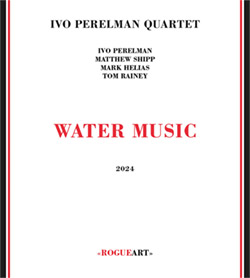

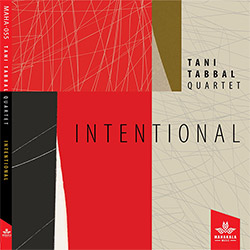


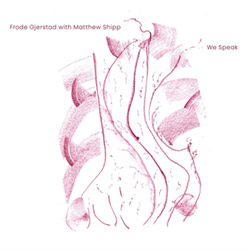
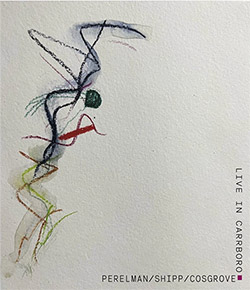
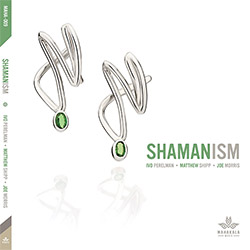
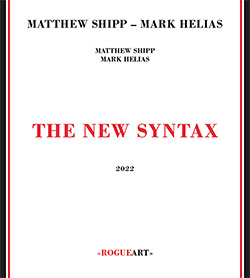
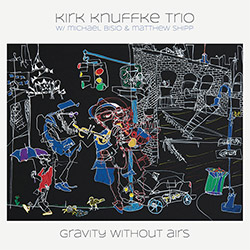
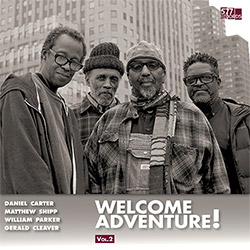
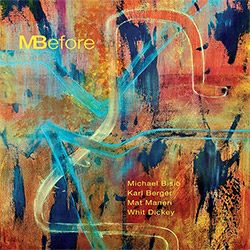
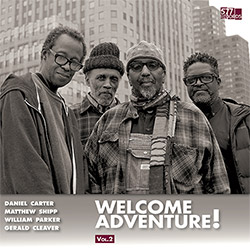
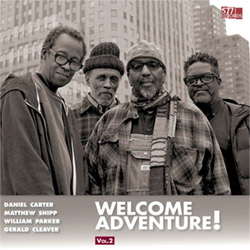
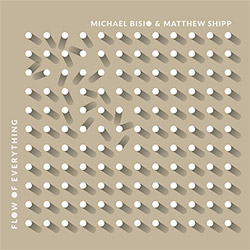

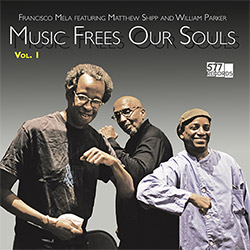
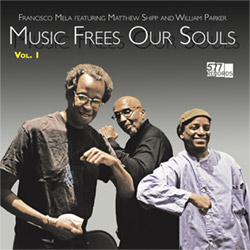


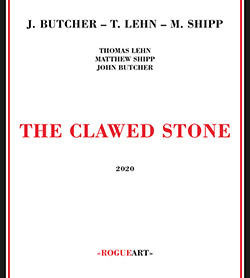














![Barker / Parker / Irabagon: Bakunawa [VINYL]](https://www.teuthida.com/productImages/misc4/35533.jpg)
![Blaser, Samuel / Marc Ducret / Peter Bruun: Dark Was The Night, Cold Was The Ground [VINYL 10-inch]](https://www.teuthida.com/productImages/misc4/35492.jpg)










![Warren, Kenny (Warren / Hoffman / Ellman): Sweet World [VINYL]](https://www.teuthida.com/productImages/misc4/35451.jpg)


![Blake, Ran / Dave Knife Fabris: Live Amsterdam 2006, First Visit [CD + POSTCARDS]](https://www.teuthida.com/productImages/misc4/35275.jpg)
![Sanna, Claudio: Compositori Sardi Contemporanei II [2 CDs]](https://www.teuthida.com/productImages/misc4/35317.jpg)












![Nevai, Nandor: <<The PRICE of FRONTIER>> Book 1: FULK [BOOK + 4 CDs]](https://www.teuthida.com/productImages/misc4/35464.jpg)
![Nevai, Nandor: <<The PRICE of FRONTIER>> Book 2: MARTIAL [BOOK + 4 CDs]](https://www.teuthida.com/productImages/misc4/35465.jpg)
![Nevai, Nandor: <<The PRICE of FRONTIER>> Book 3: JASSOM [BOOK + 4 CDs]](https://www.teuthida.com/productImages/misc4/35466.jpg)
![Nevai, Nandor: <<The PRICE of FRONTIER>> Book 4: HARD-WON [BOOK + 4 CDs]](https://www.teuthida.com/productImages/misc4/35467.jpg)






![DNS: Taking Big Bites Of The Khandas Three Cafes Deep [2 CDs]](https://www.teuthida.com/productImages/misc4/35334.jpg)




![Cleaver, Gerald: The Process [VINYL]](https://www.teuthida.com/productImages/misc4/34966.jpg)




![Alva Noto: HYbr:ID II [VINYL 2 LPs]](https://www.teuthida.com/productImages/misc4/35201.jpg)

![Baron, Derek / Luke Martin: Distinct and Concealed [CASSETTE + DOWNLOAD]](https://www.teuthida.com/productImages/misc4/35079.jpg)

![Lyle, Erica Dawn : Colonial Motels [CASSETTE + DOWNLOAD]](https://www.teuthida.com/productImages/misc4/35080.jpg)







![Alva Noto: HYbr:ID III [VINYL 2 LPs]](https://www.teuthida.com/productImages/misc4/35011.jpg)
![Kubisch, Christina / Trondheim Voices: Stromsanger 2022 For Six Voices And Electromagnetic Waves [VINYL]](https://www.teuthida.com/productImages/misc4/34628.jpg)








![Zurria, Manuel: Fame di Vento [3 CDs]](https://www.teuthida.com/productImages/misc4/35167.jpg)

![Granberg, Magnus / Nattens Inbrott / Skogen: Holde Traume, Kehret Wieder! [2 CDs]](https://www.teuthida.com/productImages/misc4/35038.jpg)
![Frey, Jurg: Outermost Melodie [2 CDs]](https://www.teuthida.com/productImages/misc4/35039.jpg)

![Pavone, Jessica: Reverse Bloom [VINYL]](https://www.teuthida.com/productImages/misc4/34895.jpg)




![Modney (Modney / Wooley / Gentile / Roberts / Pluta / Symthe / ...): Ascending Primes [2 CDs]](https://www.teuthida.com/productImages/misc4/34852.jpg)








![Elephant9 with Terje Rypdal: Catching Fire [VINYL 2 LPs]](https://www.teuthida.com/productImages/misc4/35355.jpg)
![Deerlady (Obomsawin, Mali / Magdalena Abrego): Greatest Hits [VINYL]](https://www.teuthida.com/productImages/misc4/34876.jpg)




![Haino, Keiji: Black Blues [2 CDs]](https://www.teuthida.com/productImages/misc4/35109.jpg)



![Surplus 1980: Illusion of Consistency [CD]](https://www.teuthida.com/productImages/misc4/35069.jpg)
![Staiano, Moe: Away Towards the Light [VINYL + DOWNLOAD]](https://www.teuthida.com/productImages/misc4/35037.jpg)




![Caveira (Gomes / Sousa / Abras / Ferrandini): Ficar Vivo [VINYL]](https://www.teuthida.com/productImages/misc4/34643.jpg)
![Gregg, J. J. / David Van Auken: Lunar Prairie [CD w/ DOWNLOAD]](https://www.teuthida.com/productImages/misc4/34611.jpg)

![Coultrain: Mundus [VINYL]](https://www.teuthida.com/productImages/misc4/32439.jpg)
![Mattin: Songbook #6 [VINYL]](https://www.teuthida.com/productImages/misc4/27317.jpg)
![Punkappella: Wake Up [7-inch VINYL]](https://www.teuthida.com/productImages/misc4/17519.jpg)
![Residents, The: WARNING: UNiNC.: Live And Experimental Recordings 1971-1972 [VINYL 2 LPs]](https://www.teuthida.com/productImages/misc4/31521.jpg)
![Coultrain: Phantasmagoria [VINYL]](https://www.teuthida.com/productImages/misc4/30142.jpg)
![Lennon, Sean Ono: Asterisms [VINYL]](https://www.teuthida.com/productImages/misc4/34517.jpg)

![Rotem Geffen: The Night Is The Night [VINYL]](https://www.teuthida.com/productImages/misc4/34631.jpg)
![Coley, Byron: Dating Tips for Touring Bands [VINYL]](https://www.teuthida.com/productImages/misc4/17906.jpg)

![Lost Kisses: My Life is Sad & Funny [DVD]](https://www.teuthida.com/productImages/misc4/lostKissesDVD.jpg)